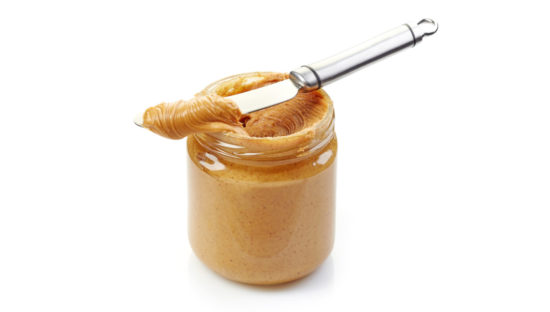UK infant botulism case traced to peanut butter

Researchers have described a confirmed case of infant botulism linked to peanut butter that occurred in the United Kingdom in May 2024.
A 6-month-old infant was hospitalized after being given peanut butter to reduce the risk of developing a peanut allergy. The child’s father had a severe peanut allergy, and the parents chose to introduce peanut butter from 6 months of age.
Clostridium botulinum type A was detected in the infant’s feces and the peanut butter. Whole genome sequencing confirmed identical strains, identifying the peanut butter as the source of infection.
Scientists said that as more caregivers follow guidance to introduce nuts and seeds early in infants’ diets, more babies are likely to be exposed to spore-bearing foods, potentially posing a botulism risk.
Illness history
Nuts may become contaminated with Clostridium botulinum spores at source or during processing.
According to the study, published in the journal Eurosurveillance, Infant botulism is rare in the UK with only 23 confirmed cases since 1977.
A previously healthy infant presented with a 1-day history of progressive lethargy, poor feeding, hoarse cry and noisy breathing, following two weeks of constipation.
The infant was treated initially for suspected sepsis. By day five of illness, lethargy had not improved. After botulism was considered likely, Clostridium botulinum antitoxin was ordered from the United States. The infant required intubation and ventilation on day six because of worsening hypoventilation resulting in respiratory failure.
On day seven, feces were referred to the Clostridium botulinum reference laboratory at the UK Health Security Agency (UKHSA). Clostridium botulinum type A was detected by PCR the next day and then on culture, confirming the diagnosis of infant botulism.
Botulism risk from peanut introduction
Antitoxin was administered on day 10. The infant required non-invasive respiratory support until day 30. The patient was discharged on day 44. By day 65, muscular tone and power had normalized, but constipation persisted. By day 110, the infant had developed severe constipation. This improved by day 140 and resolved by day 234.
The infant’s food history revealed they had been fed incremental doses of a commercial peanut butter, starting 10 days before onset of symptoms. The used container was tested at the reference lab, and Clostridium botulinum type A was detected.
The product was made of roasted peanuts without added honey. Raw peanuts harbor environmental spores which are heat resistant and can contaminate the peanut butter during processing.
“We did not test the peanut butter for botulism neurotoxin (BoNT). However, we would not expect it to have been present as the slow progression of symptoms was clinically consistent with sporulation and toxin production in the infant’s intestinal tract rather than preformed toxin causing food botulism. There were no other reported cases of food botulism notified in England at the time,” said scientists.
(To sign up for a free subscription to Food Safety News, click here)
Source: https://www.foodsafetynews.com/2025/08/uk-infant-botulism-case-traced-to-peanut-butter/
Anyone can join.
Anyone can contribute.
Anyone can become informed about their world.
"United We Stand" Click Here To Create Your Personal Citizen Journalist Account Today, Be Sure To Invite Your Friends.
Before It’s News® is a community of individuals who report on what’s going on around them, from all around the world. Anyone can join. Anyone can contribute. Anyone can become informed about their world. "United We Stand" Click Here To Create Your Personal Citizen Journalist Account Today, Be Sure To Invite Your Friends.
LION'S MANE PRODUCT
Try Our Lion’s Mane WHOLE MIND Nootropic Blend 60 Capsules
Mushrooms are having a moment. One fabulous fungus in particular, lion’s mane, may help improve memory, depression and anxiety symptoms. They are also an excellent source of nutrients that show promise as a therapy for dementia, and other neurodegenerative diseases. If you’re living with anxiety or depression, you may be curious about all the therapy options out there — including the natural ones.Our Lion’s Mane WHOLE MIND Nootropic Blend has been formulated to utilize the potency of Lion’s mane but also include the benefits of four other Highly Beneficial Mushrooms. Synergistically, they work together to Build your health through improving cognitive function and immunity regardless of your age. Our Nootropic not only improves your Cognitive Function and Activates your Immune System, but it benefits growth of Essential Gut Flora, further enhancing your Vitality.
Our Formula includes: Lion’s Mane Mushrooms which Increase Brain Power through nerve growth, lessen anxiety, reduce depression, and improve concentration. Its an excellent adaptogen, promotes sleep and improves immunity. Shiitake Mushrooms which Fight cancer cells and infectious disease, boost the immune system, promotes brain function, and serves as a source of B vitamins. Maitake Mushrooms which regulate blood sugar levels of diabetics, reduce hypertension and boosts the immune system. Reishi Mushrooms which Fight inflammation, liver disease, fatigue, tumor growth and cancer. They Improve skin disorders and soothes digestive problems, stomach ulcers and leaky gut syndrome. Chaga Mushrooms which have anti-aging effects, boost immune function, improve stamina and athletic performance, even act as a natural aphrodisiac, fighting diabetes and improving liver function. Try Our Lion’s Mane WHOLE MIND Nootropic Blend 60 Capsules Today. Be 100% Satisfied or Receive a Full Money Back Guarantee. Order Yours Today by Following This Link.






